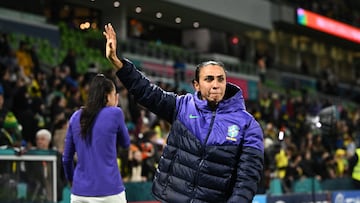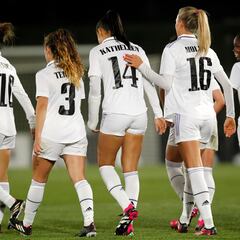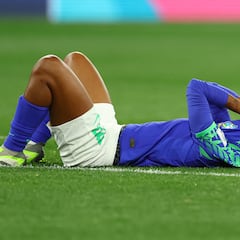The legacy of Marta: the all-time leading scorer at a World Cup
An icon, a living legend, Marta Da Silva leaves a strong legacy behind her as her career ends following Jamaica-Brazil’s shocking 0-0 draw. Let’s take a look at Marta’s career

“Keep supporting. Because for them it’s just the beginning. For me, it’s the end of the line now.”
These were Marta’s words after Brazil was eliminated from the 2023 World Cup by Jamaica on Wednesday night due to a 0-0 draw.
The Brazilian soccer legend knew this would be her final FIFA World Cup run with Brazil, but surely had hoped it would last longer than it actually did.
Words from Marta after Brazil’s exit from the World Cup. She still remains the all-time leading scorer at a World Cup? both men and women 💔💔 #BRA #FIFAWWC pic.twitter.com/yAgvNsHtDi
— Back Sports Page (@BackSportsPage) August 2, 2023
Following the match, Marta, who remains the all-time leading scorer at a World Cup with 17 goals- for both men and women, made it clear that while she’s grateful for her entire career with Brazil, this is not what she had envisioned for her final World Cup.
“Marta ends up here,” the 37-year-old said, in Portuguese, in a post-game interview. “I am grateful for the opportunity I had, and very happy with everything that has been happening with women’s football in Brazil and the world.
She added that it’s over for her now, but it’s just the beginning for the rest of the team. “It is hard to talk. It wasn’t in my worst nightmares the World Cup I dreamed of.”
Related: Marta breaks down and cries recalling how women’s soccer has evolved
Marta’s legacy: a true icon
Marta’s World Cup legacy extends beyond her performance on the field. She proved to be an exceptional leader, as evident in her unforgettable speech after Brazil’s loss to France at WC ‘19.
In 2003, the Brazilian-Swedish debuted on the world’s biggest stage, catching everyone’s attention as a 17-year-old, with three goals helping Brazil reach the quarterfinals.
Four years later, she shone brightly, scoring seven goals and earning the player of the tournament title, guiding her nation to the final, albeit losing 2-0 to Germany.
Despite coming close to World Cup glory, Marta achieved remarkable success with three Copa America titles and two Olympic silver medals with the Selecao.
Related: The Barbra Banda story: the broader problem of gender verification in sports
Although her goal-scoring streak in Australia and New Zealand couldn’t add to her tally, she remains Brazil’s all-time leading scorer with 117 goals. Widely acknowledged as one of the greatest women’s players ever, she was named FIFA World Player of the Year six times. Marta scored 122 international goals in 189 matches, and at club level, she has played for 11 sides over 23 years, in South America, North America and Europe.
Marta has concluded her sixth and final World Cup. Her impact on this sport and Brazil is beyond immeasurable 🇧🇷
— National Women’s Soccer League (@NWSL) August 2, 2023
She remains the all-time leading World Cup scorer, men’s or women’s 🐐 pic.twitter.com/ZbLjwsvCO8
“We’ve got to just live on the legacy”
Jamaica’s Tiffany Cameron spoke on behalf of thousands of other players out there saying that Marta was “actually one of my favorite players, her and Christine Sinclair. She’s been an inspiration to the younger generation and to myself. It was an honor to play against her today.
“We’ve got to just live on the legacy. We’ve got to, damn, do the best that we can and get to her level one day.”
Marta will always be one of the most esteemed players in the sport, as she played a crucial role in putting women’s football on the map. Beyond her on-pitch prowess, her profile transcended the game, elevating women’s football from the shadows and making her a true icon for a generation.
Related stories

Real Madrid Femenino announce Mexico pre-season tour

Brazil out in WWC group stage for first time in 28 years
“You know what’s good? When I started there were no idols in women’s football,” Marta said post-Jamaica match.
“Twenty years ago, nobody knew who Marta was at my first World Cup. Twenty years later, we have become a reference for many women all over the world, not only in football,” Marta added.
